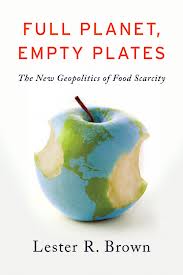A visit to the Metropolitan Museum inspires some “big picture” thinking.
 Scientists report that the human species is about 200,000 years old. And that estimate squares with the oldest exhibit at the Metropolitan Museum of Art in New York City. While visiting the museum on April 27th, I was struck by the fact that the vast majority of the exhibits were less than 3,000 years old (1,000 BC until today)
Scientists report that the human species is about 200,000 years old. And that estimate squares with the oldest exhibit at the Metropolitan Museum of Art in New York City. While visiting the museum on April 27th, I was struck by the fact that the vast majority of the exhibits were less than 3,000 years old (1,000 BC until today)
The next day, I found myself wondering what the oldest exhibit at the Met might be. I was guessing maybe 2,000 BC—and I was not even close. According to Wikipedia, “The oldest items at the Met, a set of Archeulian flints from Deir el-Bahri which date from the Lower Paleolithic period (between 300,000 – 75,000 BC), are part of the Egyptian collection.”
So those items might be as old as the scientists’ estimate for our species—200,000 years. But suffice it to say, there weren’t many humans around 200,000 years ago and those who were weren’t inflicting much if any damage on the planet.

Like ours, Mr. Brown’s book features a single apple on the cover. And like our apple, his tells a story.
That didn’t really begin until just over 200 years ago when our species hit the one billion population mark. It took us 199,800 years to reach one billion—and only 200 more years to reach 7 billion. Author and global environmental analyst described it best in his new book, “Full Planet, Empty Plates.”
Throughout most of human existence, population growth has been so slow as to be imperceptible within a single generation. Reaching a global population of 1 billion in 1804 required the entire time since modern humans appeared on the scene. To add the second billion, it took until 1927, just over a century. Thirty-three years later, in 1960, world population reached 3 billion. Then the pace sped up, as we added another billion every 13 years or so until we hit 7 billion in late 2011.
One of the consequences of this explosive growth in human numbers is that human demands have outrun the carrying capacity of the economy’s natural support systems— its forests, fisheries, grasslands, aquifers, and soils. Once demand exceeds the sustainable yield of these natural systems, additional demand can only be satisfied by consuming the resource base itself. We call this overcutting, overfishing, overgrazing, overpumping, and overplowing.
It is these overages that are undermining our global civilization. The exponential growth that has led to this explosive increase in our numbers is not always an easy concept to grasp. As a result, not many of us— including political leaders— realize that a 3 percent annual rate of growth will actually lead to a 20-fold growth in a century.
The French use a riddle to teach exponential growth to schoolchildren. A lily pond, so the riddle goes, contains a single leaf. Each day the number of leaves doubles— two leaves the second day, four the third, eight the fourth, and so on. Question: “If the pond is full on the thirtieth day, at what point is it half full?” Answer: “On the twenty-ninth day.” Our global lily pond may already be in the thirtieth day. Click here to purchase Mr. Brown’s new book on Amazon.

J. Morris Hicks speaking to the sixth graders in New London, CT
Humans, relative newcomers to planet Earth. In my recent speech to the entire sixth grade class at the middle school in New London, I told them about the fact that our home (planet Earth) had been supporting life for roughly four billion years.
In order to help them visualize what a small part of the planet’s history has included humans, I asked them to imagine that all 4 Billion years of the Earth’s history was crammed into one single year.
If all of history was one single year, humans reached the 200 million population mark around the time of Christ—about twenty seconds ago. And after finally reaching the one billion population mark in 1804, we’ve added another six billion people in just the last two seconds. And during the last fifty years (one half of one second of that single year), We humans have inflicted more damage on the fragile harmony of nature than all previous generation of humans for the past 200,000 years combined.

Former Amazon forest; now being used to grow soybeans to feed to pigs in China
Land Grabs, robbing from the poor to feed the rich. In Chapter 10 of Mr. Brown’s book, he describes the latest tragedy that is taking place all over the world. With seven billion humans and adding another billion every 13 years, we’re simply running out of land.
What is new now is the scramble to secure land abroad for more basic food and feed crops— including wheat, rice, corn, and soybeans— and for biofuels. These land acquisitions of the last several years, or “land grabs” as they are sometimes called, represent a new stage in the emerging geopolitics of food scarcity. They are occurring on a scale and at a pace not seen before.
Among the countries that are leading the charge to buy or lease land abroad, either directly through government entities or through domestically based agribusiness firms, are Saudi Arabia, South Korea, China, and India. Saudi Arabia’s population has simply outrun its land and water resources. The country is fast losing its irrigation water and will soon be totally dependent on imports from the world market or overseas farming projects for its grain. Click here to purchase Mr. Brown’s new book on Amazon.
The Bottom Line. We humans have three very serious problems: our population, the way we live and the way we eat. Eventually, all of them will be corrected, but for now—the most powerful move that we humans can make is to move aggressively in the direction of a whole foods, plant-based diet for all humans.
If all of the people that are now eating the typical Western diet did that today, we’d free up a massive land area roughly twice the size of the United States. And we shouldn’t use that “freed up” land to grow our population and feed more people, we should return that land to Mother Nature, from whom we stole it in the first place.
- Example of that “land grab” Mr. Brown speaks about. Burning trees in the Amazon — to feed pigs in China
- Earlier blog featuring Mr. Brown. Too many people, wasting resources, eating the wrong food
- My earlier blog. Forget “saving the planet.” Think great grandchildren.
- For more big picture information on how we’re damaging our HOME, take a few hours to watch these powerful videos: HOME & Earthlings
Handy 4-piece take-charge-of-your-health kit—from Amazon.com
- The movie that’s changing the lives of millions: Forks Over Knives DVD
- Healthy Eating, Healthy World, The “big picture” about food (our book)
- An essential scientific resource: The China Study by Dr. T. Colin Campbell
- Dr. McDougall’s new book, The Starch Solution, with lots of great recipes.
Want to find out how healthy your family is eating? Take our free 4Leaf Survey. It takes less than five minutes and you can score it yourself. After taking the survey, please give me your feedback as it will be helpful in the development of our future 4Leaf app for smartphones. Send feedback to jmorrishicks@me.com

 International. We’re now reaching people in over 100 countries. Follow us on Facebook and Twitter or get daily blog notices by “following” us in the top of the right-hand column. For occasional updates, join our periodic mailing list.
International. We’re now reaching people in over 100 countries. Follow us on Facebook and Twitter or get daily blog notices by “following” us in the top of the right-hand column. For occasional updates, join our periodic mailing list.
To order more of my favorite books—visit our online BookStore now

J. Morris Hicks, working daily to promote health, hope and harmony on planet Earth.
For help in your own quest to take charge of your health, you might find some useful information at our 4Leaf page or some great recipes at Lisa’s 4Leaf Kitchen.
Got a question? Let me hear from you at jmorrishicks@me.com. Or give me a call on my cell at 917-399-9700.
SHARE and rate this post below.
—J. Morris Hicks, board member, T. Colin Campbell Foundation


Jim, I think we produce enough food to feed all the humans on Earth. Trouble is too much of that food is fed to livestock, thus leaving too many people hungry while a few eat like royalty. Recall Philip Wollen’s debate video. I also suggest your readers read Comfortably Unaware by Richard Oppenlander. Dr. Oppenlander’s book comes at meat consumption from what it’s doing to the planet.
http://en.wikipedia.org/wiki/Rainforest
The above link is a quick look at what has happened to the rain forests of the world. Among other important things these forests can be likened to giant air filters for the planet. We desperately need world leaders with vision.
Thanks for the post Jim.
Jim: I ordered “Whole,” and your contacts should know that we still can get your book for free till May 1st!
2c) TO: aida@benbellabooks.com
Aida — I am a friend of Dr. Campbell’s for several years. I just pre-ordered three of his new book “Whole.” Please ensure that I also receive three copies of my friend Jim Hick’s book “Healthy Eating, Healthy World” as still special-offered for free till May 1st! Thanks.
Whole: Pre-Order | The China Study Community
Copy of this reply email to Dr. Campbell and to Jim Hicks.
Thanks and congrats for being the publisher of these world-improving books!
Bill Kleinbauer
– – – – – – – – – –
Health files also at http:chinaoneorcutt.com
– – – – – – – – – – – – – –
BCC to my long-time contacts re “Healthy Lifestyle Education & Support”
##################
Fast response:
“Dear William,
I will process your order and make sure you get Jim’s book as well.
Best,
Aida Herrera
Administrative Director | BenBella Books, Inc.
10300 N. Central Expy., Suite 530 (New suite) | Dallas, TX 75231
T 214 361 7901 | F 214 750 3645 “
Yes! I posted that as a response to my post of the order in your Comments section.
And — I got a 2nd email that says that the order has been filled! Let’s see if I get three of your books. I was surprised that the free offer was beyond the March date I saw originally.
All goes well — and you continue to post great actions in your blog.
You could post a blog on the feedbacks to your school presentations. I expect that you got mostly PRO, and probably some CON from parents who had their boats rocked by the kids who want to change their diets at home and at fast food places!?